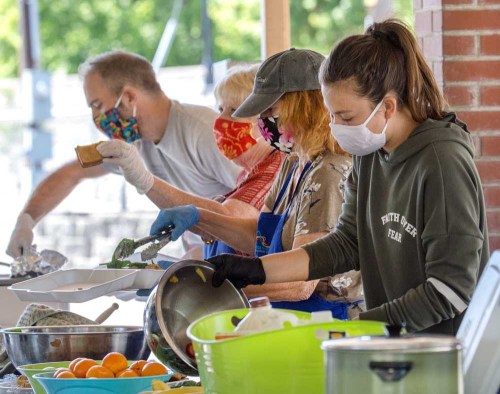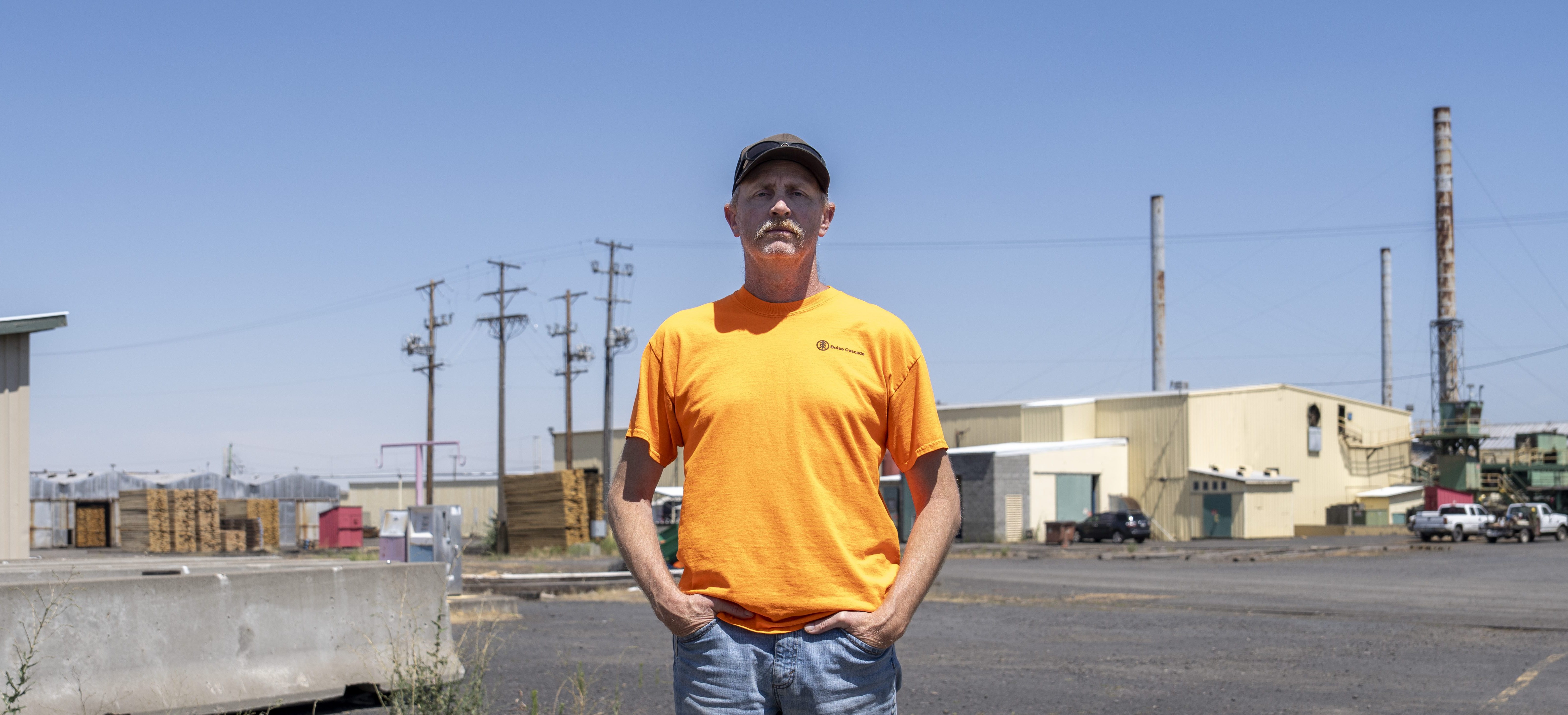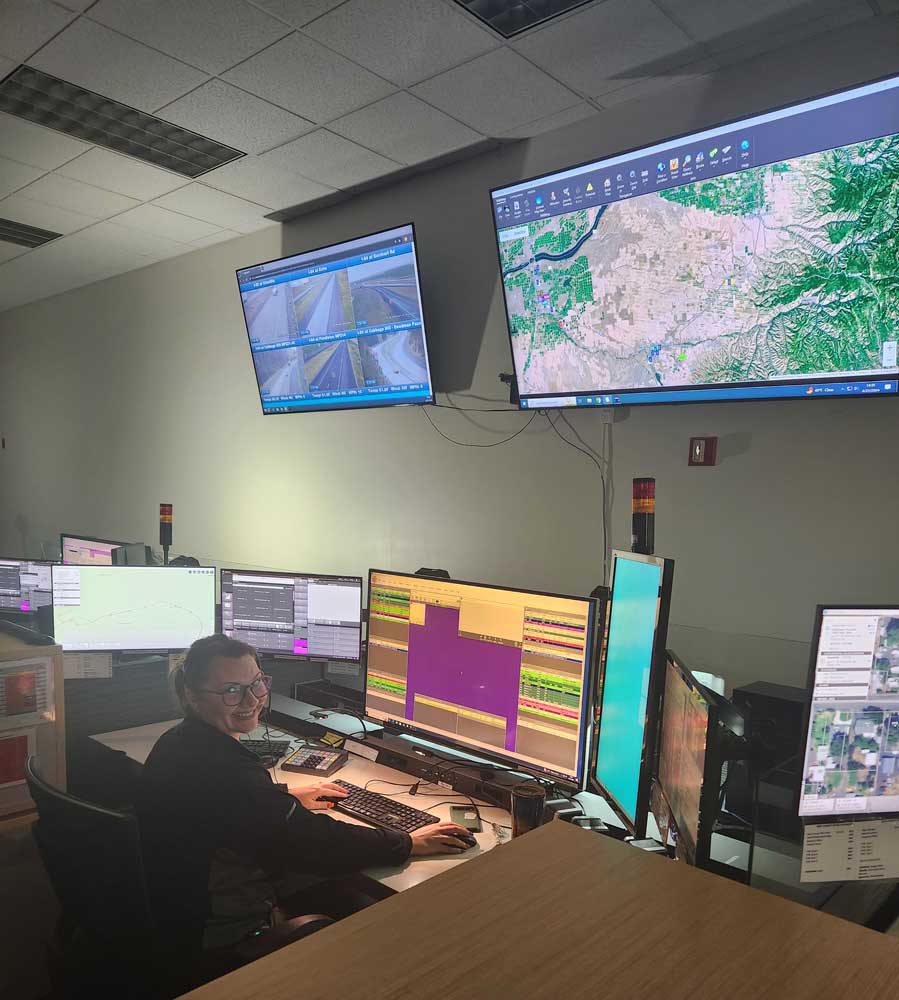Fighting hunger one meal at a time
Published 6:00 am Tuesday, November 10, 2020

- Volunteers serve dinner on Sunday, May 24, 2020, at Stillman Park in Pendleton. Karen Rose (second from left) and Carole Innes started the Stillman Park Meal Project in early May.
PENDLETON — Every Sunday, they come.
Some are homeless. Some aren’t. Most, if not all, suffer from food insufficiency.
Trending
A couple of Pendleton women are doing what they can to quell hunger pangs in their community by serving meals each Sunday to whoever shows up. They geared up in April and recently passed the 1,200-meal mark.
Pendleton City Councilor Carole Innes and Karen Rose started serving meals at Stillman Park after organizing a cadre of volunteers and devising an online portal for those who wish to donate food. The Stillman Park Meal Project normally is served each Sunday starting at 2 p.m. in the park’s covered area. Recently, the meal moved a few blocks to the Salvation Army.
Innes said the reason for moving to the new location was concern about spreading the virus.
“COVID got to be just too active. We worried about the safety of the people that we were feeding because they prefer to sit at tables in the park and eat,” she said. “We were really concerned about the lack of social distancing.”
Volunteers assemble to-go meals at the nearby Pendleton Warming Station and hand them out at the Salvation Army from 2-3 p.m. This meal plugs a hole since the Salvation Army’s own meal program runs Monday through Saturday.
Sunday meal recipients, who must wear masks, come to the dining room door where they receive a bagged-up hot meal with fruit, beverage and dessert.
Trending
Data released by the Census Bureau and the Department of Agriculture suggests that hunger in American households almost tripled between the end of 2019 and August 2020. More Americans are finding themselves in food lines. One analysis done by Feeding America predicts that food insecurity will hit 52 million people, an increase of 17 million from pre-pandemic times.
In Pendleton, the Sunday servers feed an average of 60 people each week. The number ebbs and flows with the weather. The diners are demographically diverse.
“There are homeless people, and then there are people who due to COVID may have lost a job and just are food insufficient,” she said. “Several have said, ‘I never thought I would ever have to come and ask for a free dinner.’”
Salvation Army Major Dwayne Halstad said moving the meal to his facility at 150 S.E. Emigrant Ave. makes sense.
“They (the diners) come here six days a week anyway,” he said.
Halstad, who said the Salvation Army feeds about 90-100 people on those days, had just finished his daily delivery route. Every day he loads the van with lunches and takes off, keeping his eyes peeled for hungry individuals.
“I deliver to about 45-50 people a day,” he said. “I drive around and find them.”
He spots them in parks or panhandling on corners.
The pandemic has made feeding hungry people more expensive at the Salvation Army. Instead of serving them inside and using real plates and silverware, the meals go into Styrofoam clamshells with plastic utensils. They are put into a plastic bag, along with a bottle of water.
“It’s expensive,” Halstad said. “We pay $10,000 more a year to do the to-go style.”
The Sunday group follows the same model of serving in clamshell containers and bags.
Innes said she and Rose are only the latest to feed on Sundays. George and Dro Winter provided food at Stillman on and off over the years. So did Dave Haskett, and before that Veda Spencer and her granddaughter Breanna Spencer. It’s something of a tradition, Innes said.
When she and Rose pondered restarting the weekly meal last spring, they approached fellow members of the local Altrusa chapter and other friends.
“They were all in,” Innes said.
Rose, who loves to travel, has seen poverty around the world. After observing the same at home in one of the world’s wealthiest countries, she needed to find a way to help. She and Innes already work at the warming station and are involved in Kids at Risk Empowered, an Altrusa project that assists homeless students.
“It was a natural jump when Carole Innes asked me to help her with the Stillman Park Sunday Dinner Project,” she said. “The rewards for me come from those we help and seeing the delight they have when we give them food, clothing items, or information/help getting connected.”
Rose and Innes create a menu each week, and then email about 100-or-so volunteers. They sign up on a Google document to supply items, such as fruit, bottled water or casseroles. Innes and Rose use cash donations to buy additional supplies at the grocery store. Backpacks, gloves, warm clothing and blankets are also needed and can be brought to the Salvation Army around 1:15 p.m. on Sunday.
People interested in being added to an email list of volunteers should email Innes at cinnes.45@charter.net.









